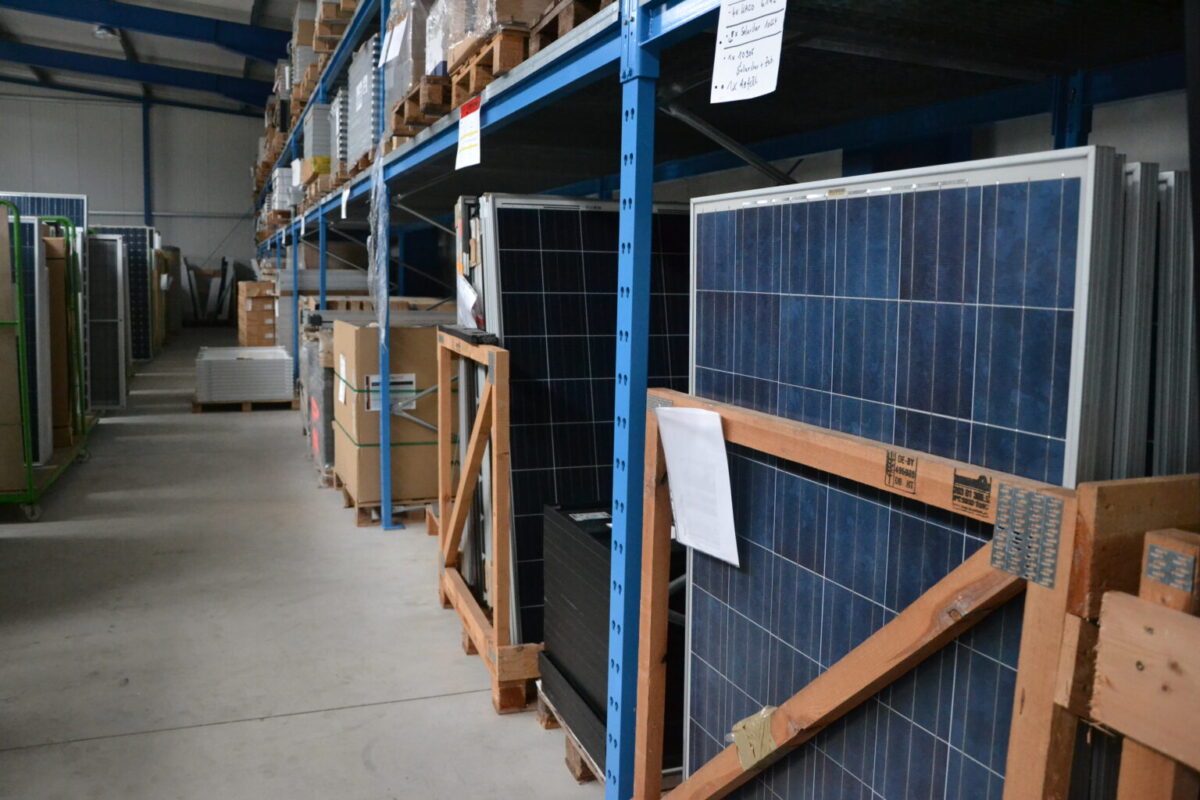Solar panel prices are having an impact on the used module market, according to Stefan Wippich, the CEO and co-founder of SecondSol, a Germany-based marketplace and dealer of panels, batteries and inverters He noted that demand for older but unused products is also growing.
“Photovoltaic modules, inverters and batteries that have never been used are currently the most requested products,” he told pv magazine. “These products are followed by spare parts. Demand for used modules is currently lower due to the drop in the price of new solar modules.”
SecondSol operates a 10,000 sqm warehouse in central Germany, used mostly for spare parts. Like other similar platforms, it buys and sells products for specific uses, such as revamping and repowering.
Wippich said that used panels should play a greater role in the energy transition, despite the complexities of using them.
“In my opinion, a good used module is no worse than a new module,” he added. “More mounting material will definitely be needed for installation. However, I believe that incentive programs such as repowering are an important step in using space efficiently. We need rules for the trade of used modules and we must stop the export of photovoltaic waste. We also need effective recycling of defective modules in Europe. I see potential everywhere.”
SecondSol mainly has dealers in Poland and the Netherlands, but the greatest demand for spare parts comes from Germany and Italy.
“Spanish O&M requires many central inverters and their components,” Wippich said. “There are also differences between users. We currently have over 60,000 users from all over Europe, including around 3,000 sellers. In Germany we see a lot of private individuals, while in the rest of Europe there are more commercial sellers.”
In Italy, where SecondSol faces growing competition – including from the Italian KeepTheSun project, under Energy Service Company COESA – the company records more purchases than offers. Wippich said this is surprising.
“If more retailers and installers made residual stocks and spare parts visible, this would help the Italian market, but also other European photovoltaic markets,” he explained. “Our goal is to create a photovoltaic community that organizes the business of spare parts together in Europe.”
The products are normally stored in retail warehouses or in European ports. SecondSol does not manage the logistics of these products, or payment, as buyers and sellers handle that themselves.
“We are always pleasantly surprised at how simple and fast it works, even across national borders,” said Wippich.
The company sells new and used spare parts, as well as new and used panels, for its business line oriented toward direct sales of products. However, it only deals with new batteries. They are usually sourced from the inventories of retailers and wholesalers that have been bought by SecondSol.
The modules are usually the only way to repair some systems, because retailers and manufacturers are no longer able to provide suitable replacement parts after relatively short periods of time, due to rapid technological developments. However, prices are also affected by logistical costs and trends in the global markets for new panels.
“We purchase specific spare parts and usually keep them for several years. This is a process that requires a lot of staff,” Wippich said. “Therefore, the costs for employees, cataloging and storage are relatively high even before the sale, since these are usually single modules or a few modules in a batch. Module prices were also higher a few years ago than they are today.”
This content is protected by copyright and may not be reused. If you want to cooperate with us and would like to reuse some of our content, please contact: editors@pv-magazine.com.



Where are all these ultra cheap panels? I’ve been shopping for residential solar in Canada for about 3 years and things still are ungodly expensive here.